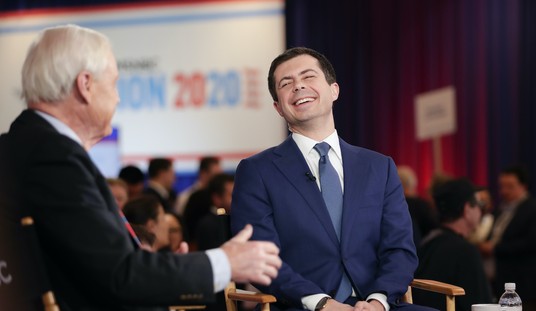I just finished reading Tucker Carlson’s new book “Ship of Fools,” a broadside against America’s self-serving ruling class. As Carlson demonstrates over and over again, elites love to lecture ignorant hillbillies in flyover country about our lack of appreciation for “diversity.” In fact, elites are downright obsessed with “diversity.”
But how diverse is elite America?
“The Democratic Party is now the party of the rich,” Carlson writes. “Eight of America’s ten most affluent counties voted for Hillary Clinton in 2016…in Fairfield County, Connecticut, the hedge fund capital of the world, Hillary won by nearly 20 points. In Nantucket, she won by more than 30 points…in Marin County, the privileged enclave across the Golden Gate from San Francisco, Clinton’s margin was greater than 50 points.”
Hillary Clinton outraised Donald Trump 20-to-1 among America’s billionaires. Employees of the wealthiest corporations in America—Google, Facebook, Apple, Microsoft, and Amazon—donated to Hillary Clinton over Donald Trump by a margin of 60 to 1.
Liberal elites love to sneer at the term “liberal elites,” closing it inside mandatory square quotes. That’s because they know, deep down, that no one experiences less diversity in their daily lives than they do. They don’t take the subway or the bus, their kids don’t go to public schools, and they don’t shop at Costco or Dollar Tree. They have no experience with the issues they claim to care so much about—like police brutality—because they live in gated neighborhoods with private security, and don’t drive the beat-up cars that often trigger police profiling. Needless to say, they have no idea what it’s like to work for $15 an hour—much less $8 or $9.
Recommended
So they obsess about the only type of “diversity” they encounter in the elite bubble: the diversity of skin colors and sexual preferences among their fellow rich kids.
“The ruling class’s insistent defense of ‘equality’ is a way of freeing themselves from any real duties to the lower classes, which are increasingly out of geographical sight and mind,” Carlson quotes Notre Dame professor Patrick Deneen as saying.
Taking politically correct stances on transgender bathrooms and “climate change” is a way for elite Americans to feel good about themselves while ignoring the social-justice issues right under their noses. This is because elites—especially corporate elites—benefit from the quiet exploitation of people who don’t have the social clout to complain. Take Apple, for example.
However, they have the values of nineteenth-century Robber Barons when it comes to the third-world peasants toiling in their factories. Apple products are manufactured in China by Foxconn, a Taiwanese company that pays people $2 a day to assemble iPhones.
“Some workers have reported being forced to stand for twenty-four hours at a time. Others say they are beaten by their supervisors,” Carlson writes. In 2010, they began committing mass suicide in protest—a story the American media studiously ignored. White liberals didn’t launch Twitter hashtags or Facebook campaigns in solidarity with Foxconn workers assembling iPhones in brutal conditions. Nobody cared—because Apple, as Carlson writes, “has purchased indulgences from the church of cultural liberalism.”
“Apple has a gay CEO with fashionable social views,” he writes. “The company issues statements about green energy and protested the Trump administration’s immigration policies. The company is progressive in ways that matter in Brooklyn.”
Being progressive in ways that matter in elite America means flagellating yourself for your “white privilege,” while ignoring the fact that everyone you interact with is privileged, period. In 2015, The New York Times published an unintentionally comical article titled “At New York Private Schools, Challenging White Privilege From the Inside.”
“On a recent morning, 20 or so high school students, most of them white, milled about the meetinghouse at Friends Seminary, a private school in Manhattan. They were trying to unload on their classmates slips of paper on which they had jotted down words related to the topic ‘Things I don’t want to be called’…Several girls tried get to rid of ‘ditsy.’ A sophomore in jeans and a gray hoodie who identifies as Asian-American was seeking to unload ‘minority,” the Times reported.
“And several white students, including a long-limbed girl in a checkered lumberjack shirt, wanted to get rid of ‘privileged,’” the article continued. “’It’s just a very strong word to use,’ the last girl said. ‘I don’t want to be identified with that just because my parents can afford things. I think it has a negative connotation.’”
This article was, sadly, not satire. The Times described this vapid absurdity as “part of a new wave of diversity efforts that some of the city’s most elite private schools are undertaking.”
This is what “diversity” means in elite America. Elites claim to deeply value equality for gay people, women, immigrants, and “people of color”—but only as long as those people can pony up the private school tuition and country club fees. Of course, a rainbow of skin tones, genders, and nationalities isn’t very “diverse” if everyone in the room lives in Pacific Heights and went to Stanford.
That’s not diversity. That’s surrounding yourself with people exactly like you. In a glaring display of psychological projection, elites accuse narrow-minded Americans in flyover country of doing exactly that.
Elite America is a “Ship of Fools,” indeed.


